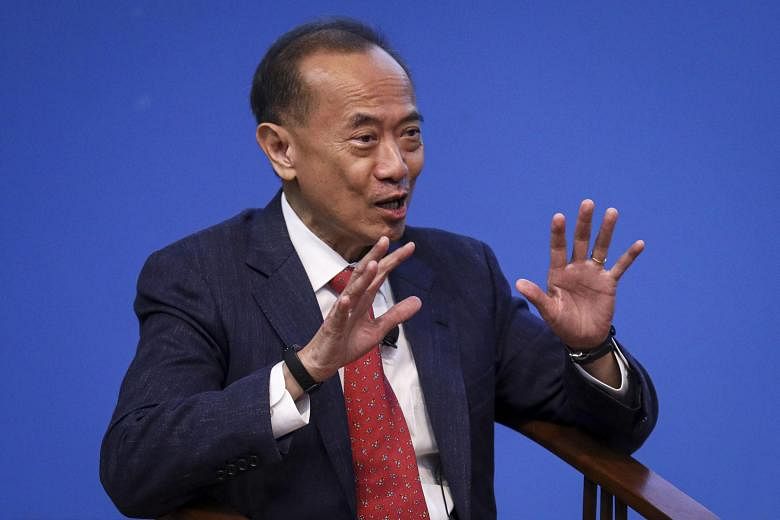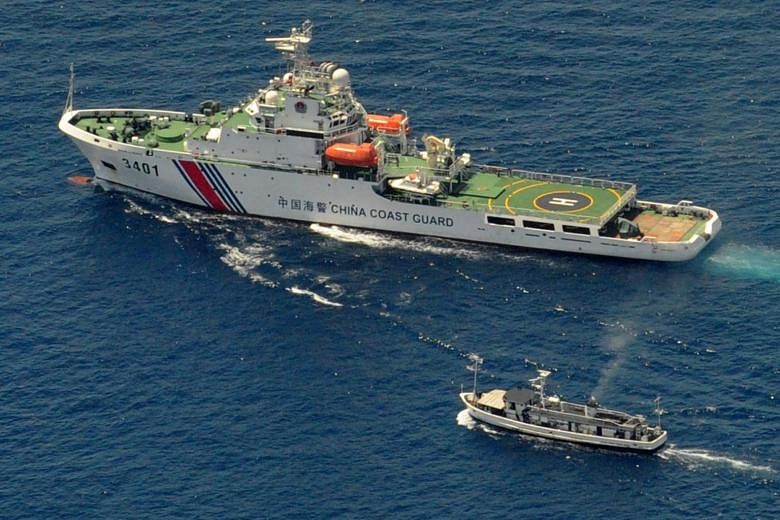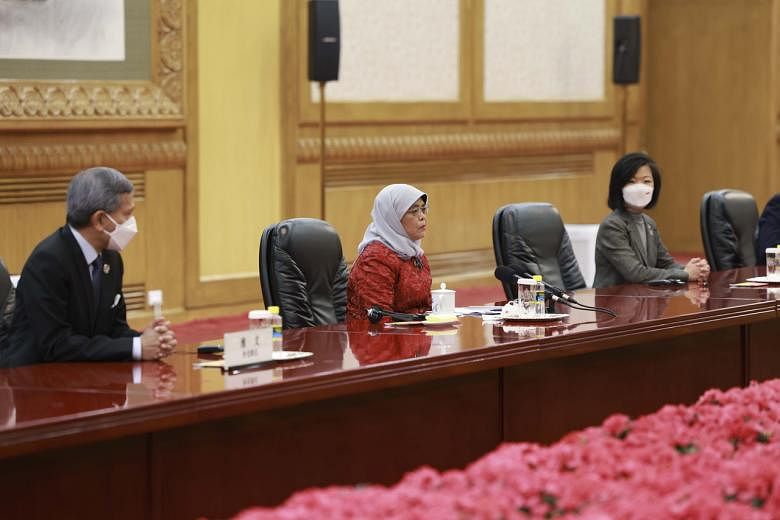- Joined
- Jul 25, 2008
- Messages
- 15,333
- Points
- 113
S'pore should prepare for up to 30 years of US-China rivalry: George Yeo

Former foreign minister George Yeo suggested that Singapore work on reconnecting with its South-east Asian neighbours and establishing its own identity. ST PHOTO: FELINE LIM

Justin Ong
Political Correspondent
JAN 11, 2022
SINGAPORE - Singapore should prepare for "easily" up to 30 years of competition between the United States and China, which could take the form of skirmishes off the sea or proxy wars, said former foreign minister George Yeo on Tuesday (Jan 11).
To avoid being caught in between and to maintain sovereignty, he suggested that Singapore work on reconnecting with its South-east Asian neighbours and establishing its own identity - one where being Singaporean means being "bigger" than just a nationality.
Mr Yeo, who is currently a visiting scholar at the Lee Kuan Yew School of Public Policy, was speaking as a panellist at a curtain-raiser for the annual Singapore Perspectives conference organised by the Institute of Policy Studies think-tank.
This year's event, with the theme "City", comprises seven virtual forums on Jan 13 and 17, and a physical conference on Jan 24.
Asked by moderator and ambassador-at-large Chan Heng Chee if he saw Singapore being among the great cities in the region and the world in the next two decades or so, Mr Yeo said that if the Republic can position itself well in a flourishing Asia, its prospects would be bright.
"There's no guarantee because we're in competition with others. There's always the possibility that we may make bad mistakes," he added.
"For example, the current tension between the US and China will mark this period of history and it will go on for years to come… sometimes high tension, sometimes low tension."
Mr Yeo said that if Singapore remains just a city-state, it would find itself frequently between a rock and a hard place.
Singapore thus needs to organically "reroot" itself in the region and become a capital city of Asean, he added, noting Singapore's links to other members of the 10-nation bloc through their sizeable communities here.
Working through Asean, Singapore can better navigate the big powers - not by taking sides, but by leaning "a little to the other side" in the event anyone pushes Singapore too hard.
Mr Yeo said Singapore's leaders must have the foresight to steer the nation away from potential conflict and danger.
"We are part of many networks - the American network, the Chinese network, the Indian network. And every network has to capture us, naturally, so we have to be careful," he cautioned. "We are friendly to everybody, but we are autonomous."
Also taking part in the in-person panel discussion was former chief city planner Liu Thai Ker, though their audience was an online one. Viewers could submit questions - one of which was how Singapore could thrive amid conflicting spheres of influence between China and the US.
Mr Yeo said the challenge for the country - where about three-quarters of the population identify as ethnically Chinese - was not outside but "inside".
"Who are we as Singaporeans?" he asked. "Is Singapore just a facility, a convention centre, a good hotel, a restaurant - or is it something more? Does it stand for values which others are happy to associate with?"
Mr Yeo added: "Singapore is special because our different communities retain their ancestral cultures… and we encourage them to be proud of their ancestral cultures. Our diversity is not based upon everybody curbing themselves to become Singaporean, but everybody being bigger in accepting others who are not like themselves.
"If we can make this happen - that to be Singaporean is to be bigger than what you were when you were in China or India or Indonesia or Thailand… then to be a Singaporean is to become bigger."
Mr Yeo said this, and questions around how Singaporeans relate to one another, was something to think deeply about.
"The more comfortable we are with our own identity, the more open we'll be," he said. "If I know who I am, I can accept you for who you are… So identity is important, and Singapore's identity is complicated because it is made up of constituent identities."








